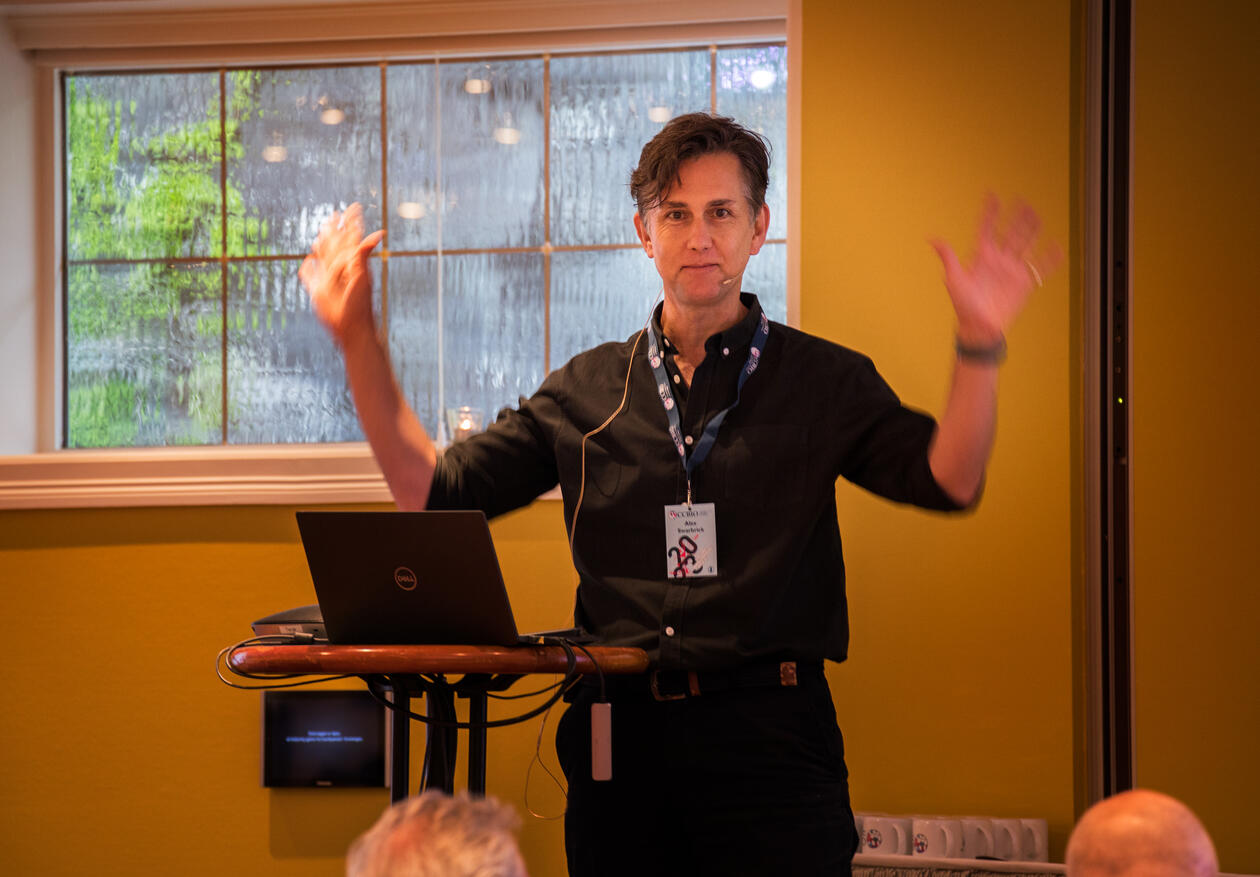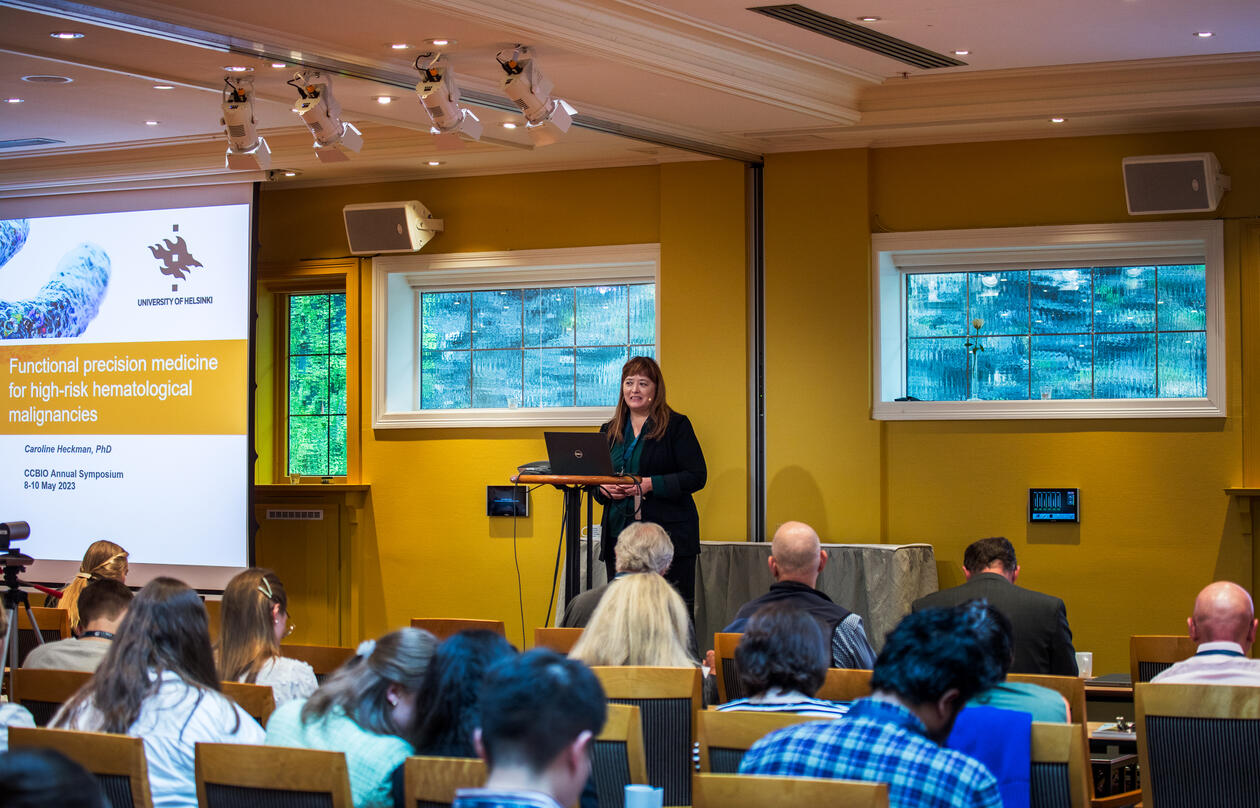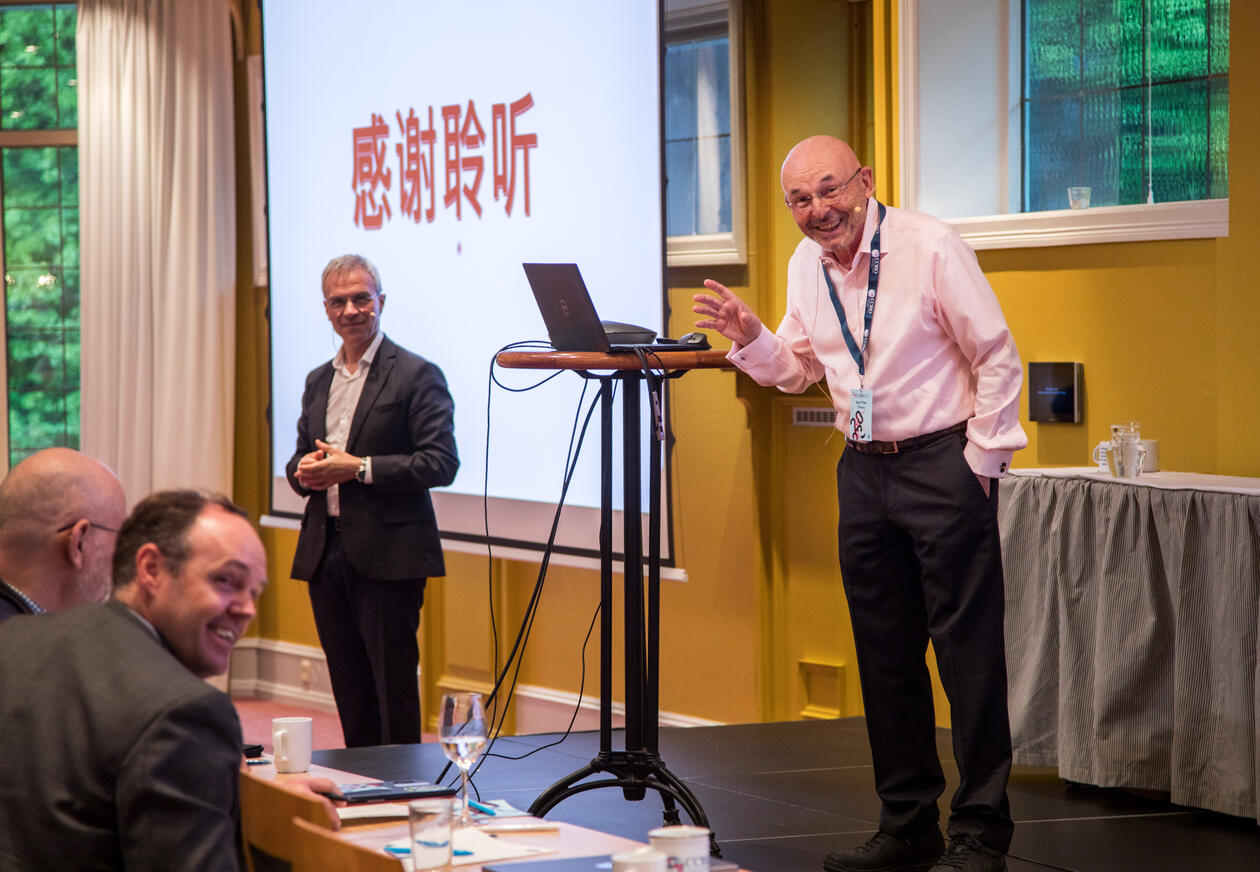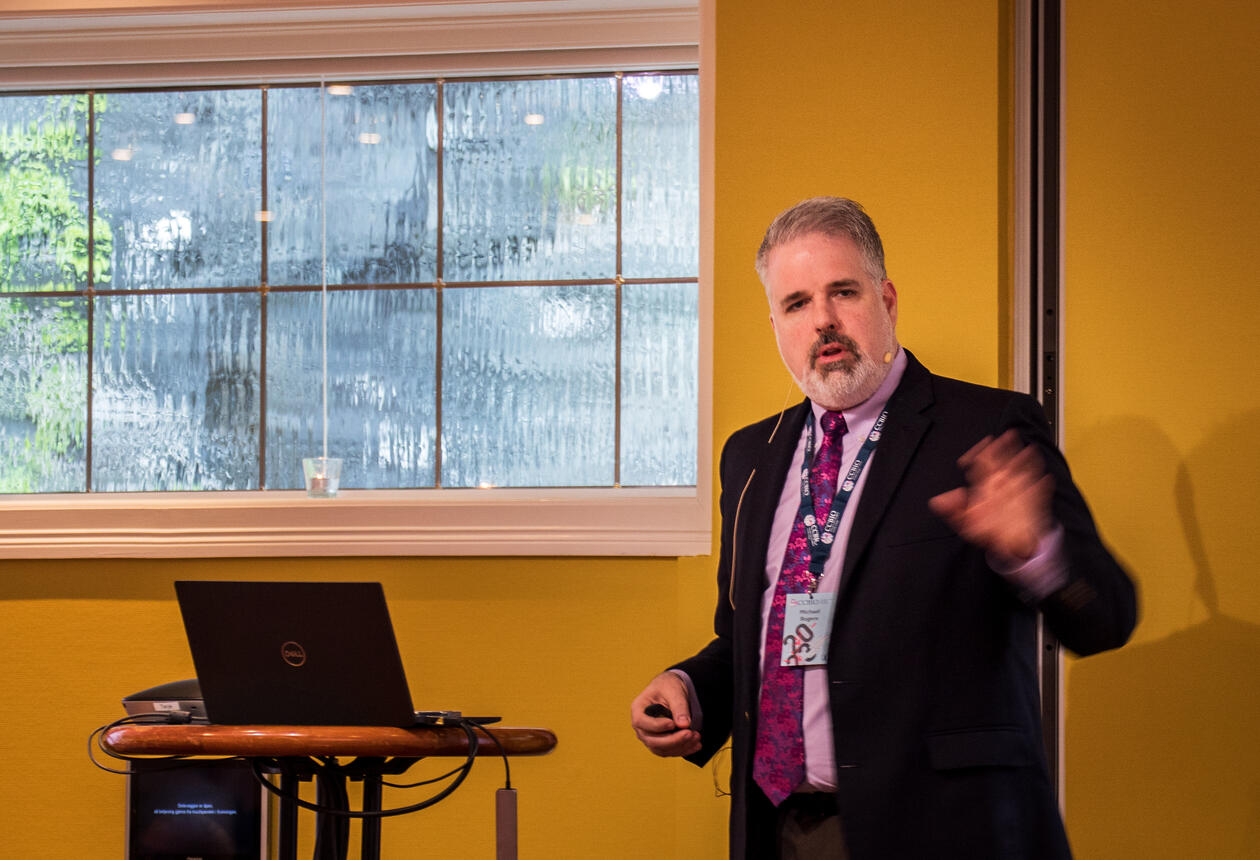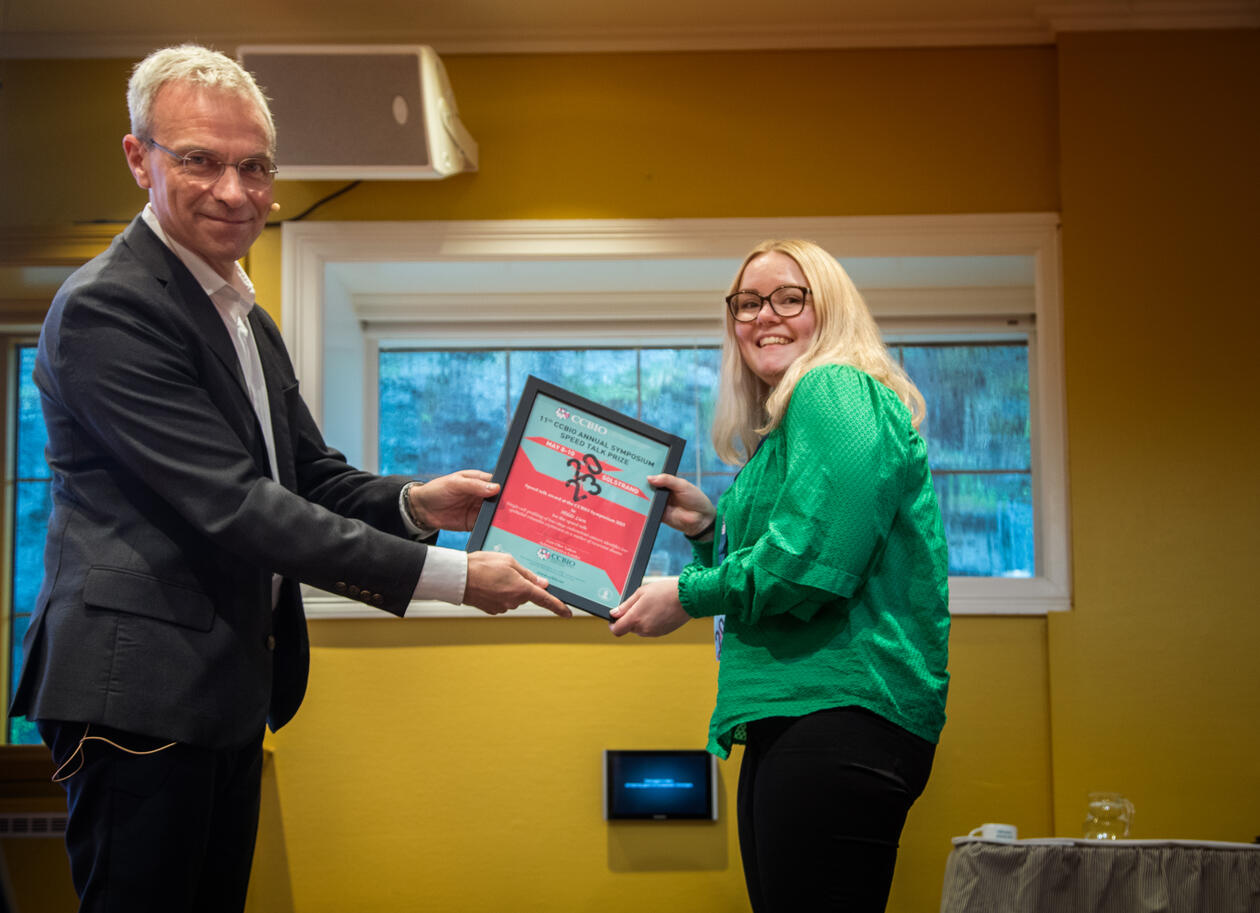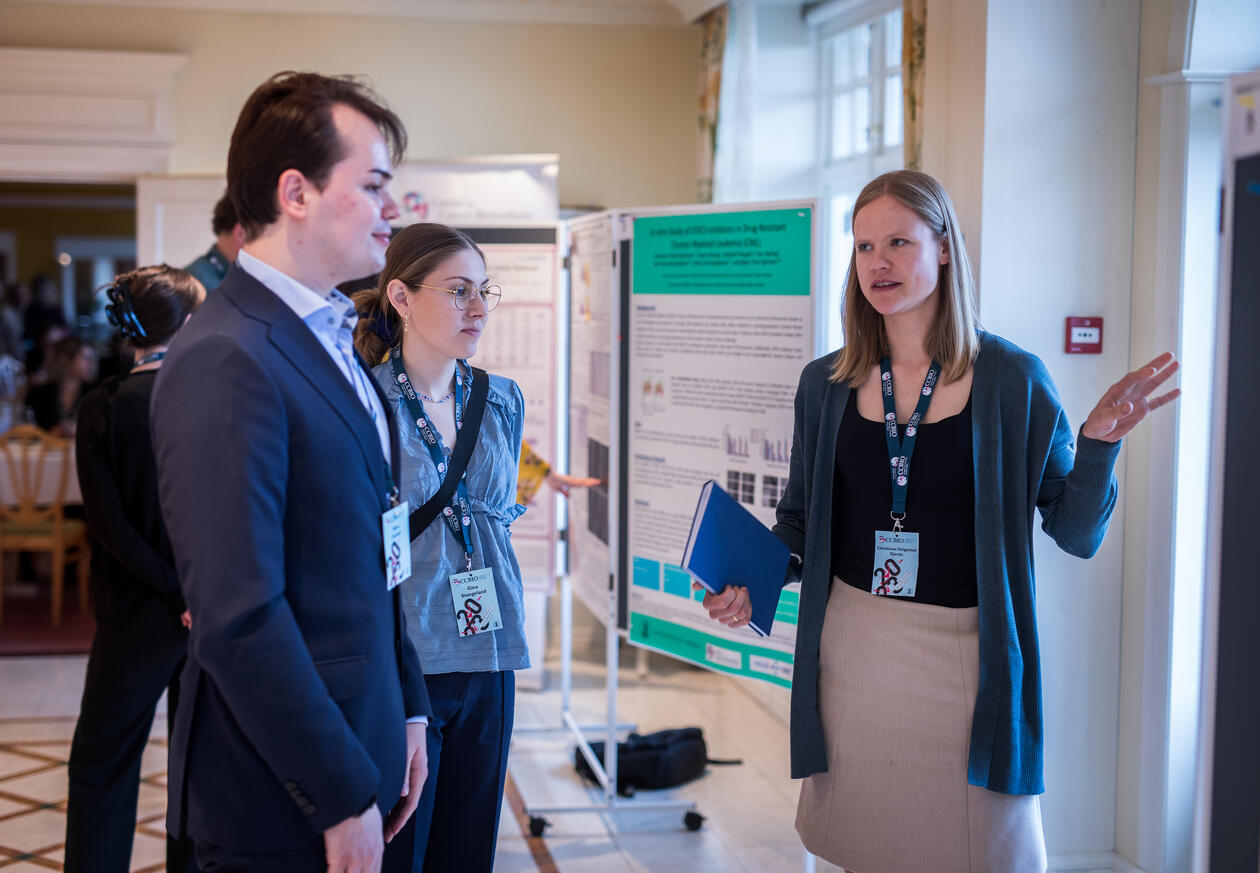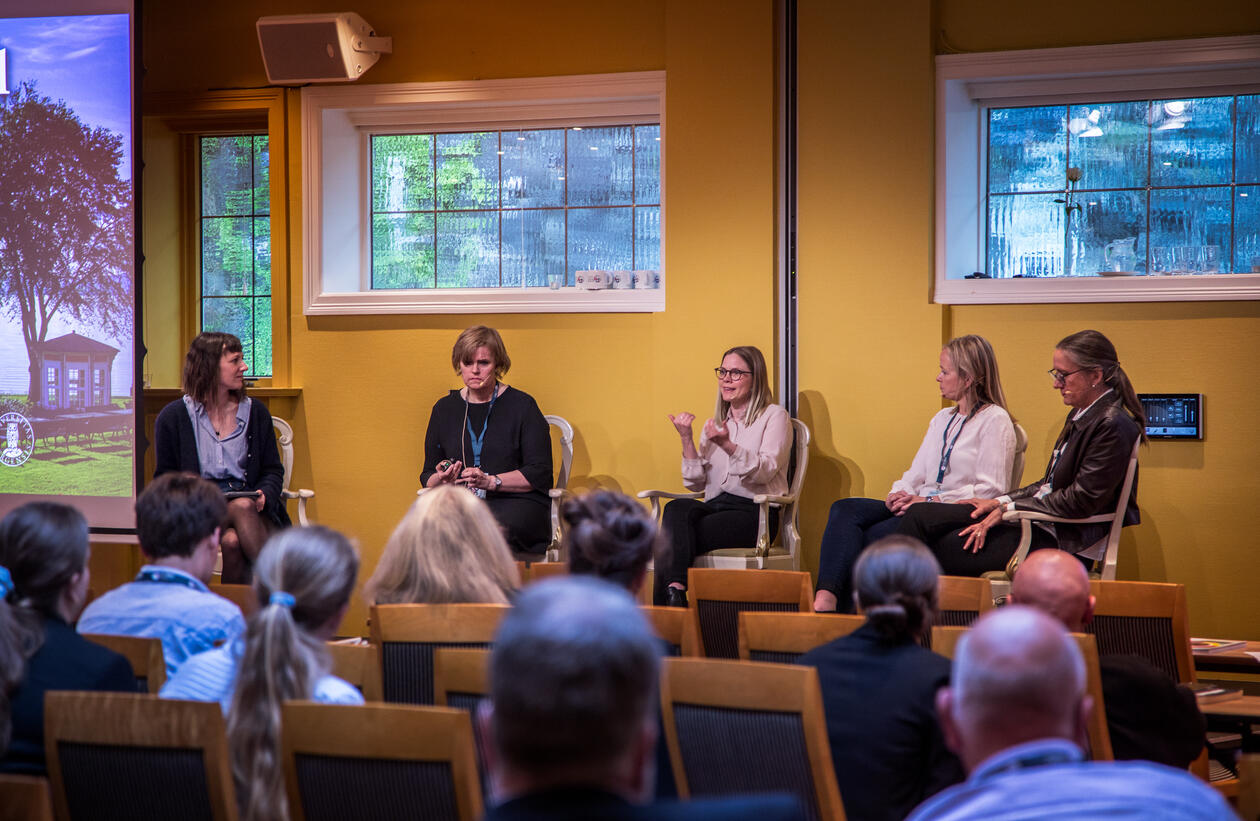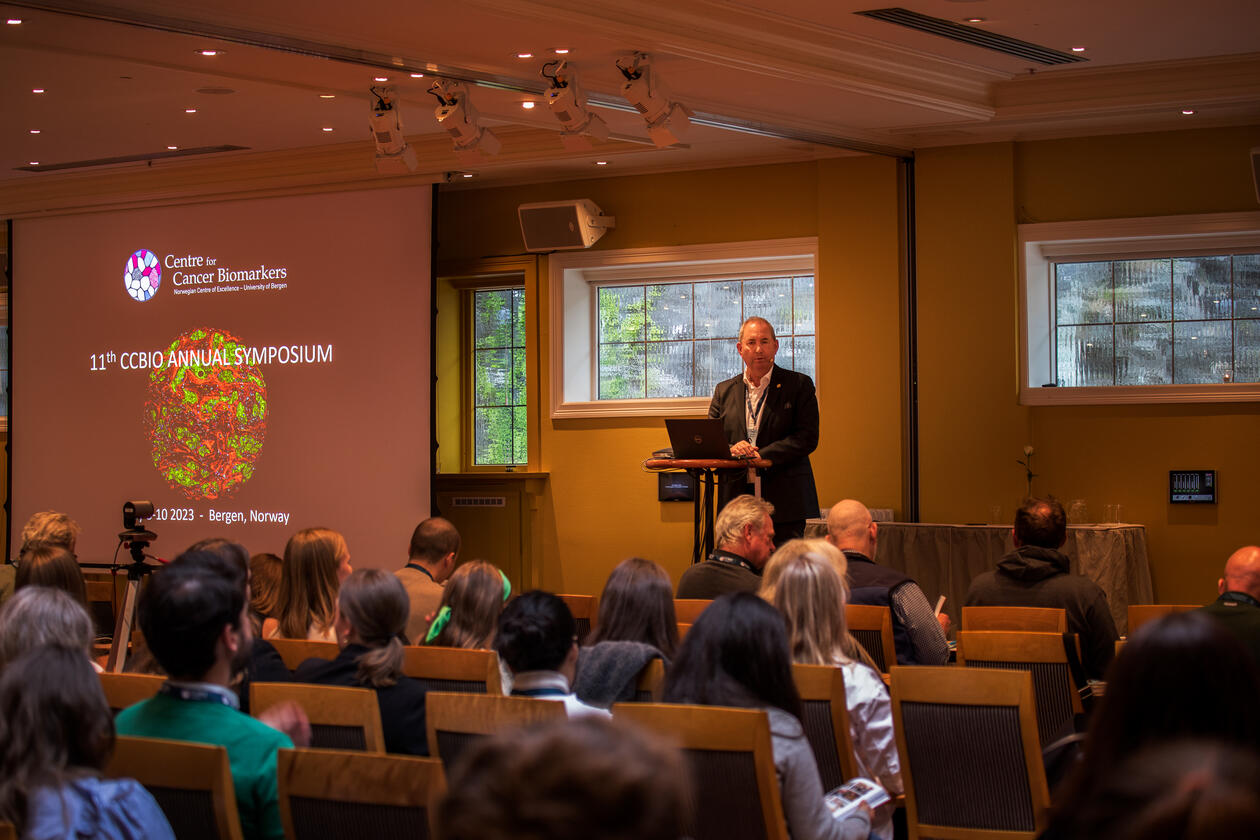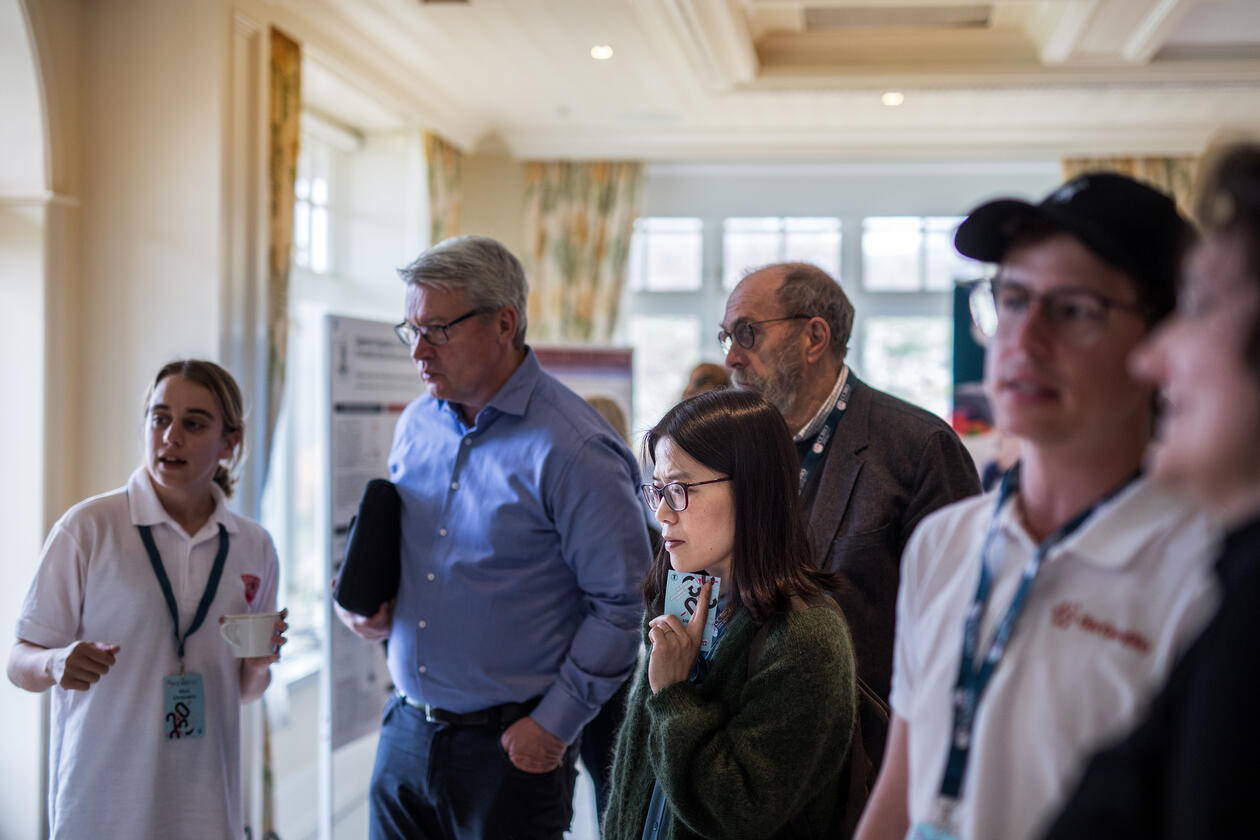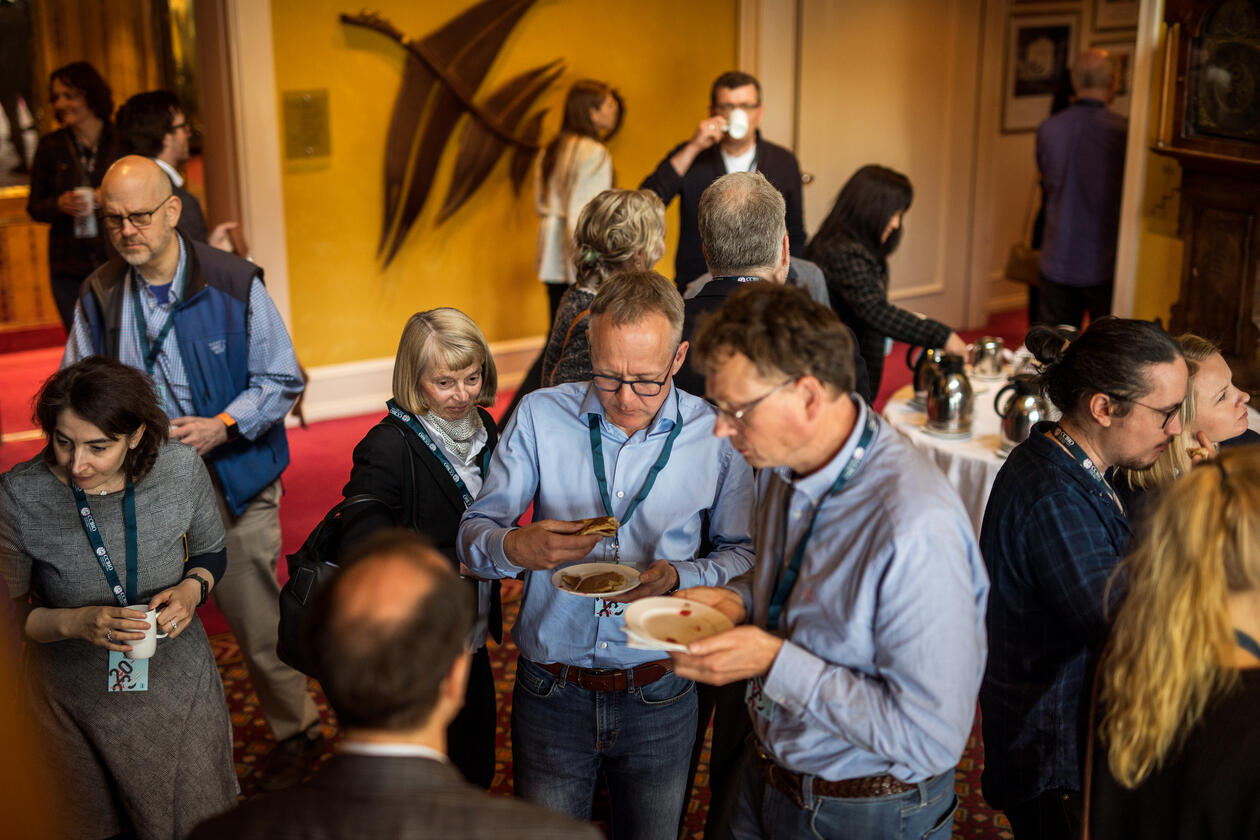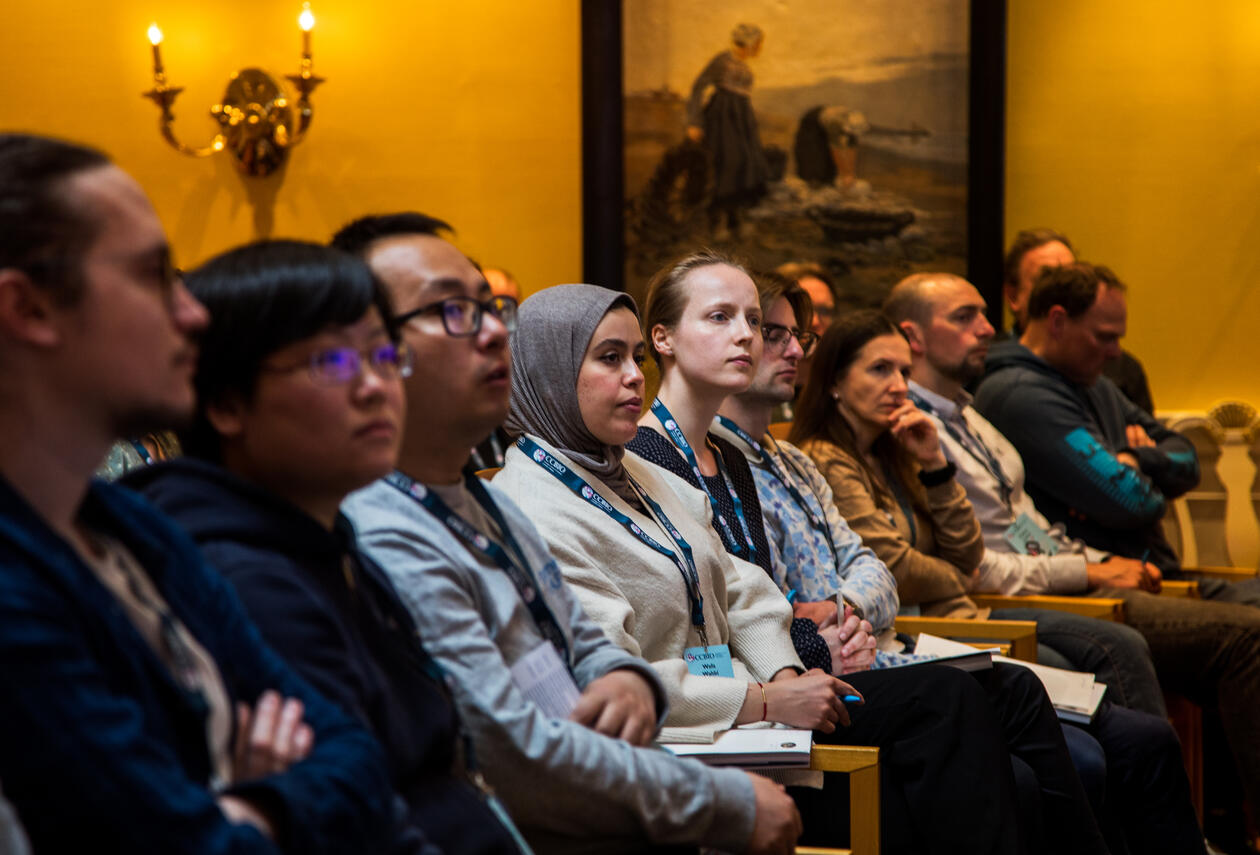Fertilizing cancer research collaborations at the 11th CCBIO Annual Symposium 2023
The 11th CCBIO Annual Symposium was this time enlarged with a generous time frame and two overnight stays, May 8-11, 2023. Although there was an option for online attendance, only 14 participants chose to attend online, and the rest of the total of 235 chose to enjoy the company of colleagues and the informal and mutually fertilizing scientific crosstalk in the breaks and the evenings.

Hovedinnhold
Covering a broad range of cancers
Day 1 started with the keynote from Professor Alexander Swarbrick from the Garvan Institute of Medical Research, Darlinghurst, and St Vincent's Clinical School, University of New South Wales, Sydney, Australia. He explained the work at his lab where they are parsing breast cancer ecosystems with cellular genomics, presenting interesting recent data using cellular genomics to discover new biomarkers and therapeutic strategies for breast cancer.
Ovarian cancer was covered by Iain McNeish who gave a talk on ovarian cancer and copy number alterations, as well as Anniina Färkkilä, explaining how HRD/BRCA status influences the ovarian cancer. Other highlights included Stephane Terry on the role of hypoxia, EMT and AXL in cancer immune escape; Ingrid Hedenfalk who explored the normal-like subtype of breast cancer; Catherine Alix-Panabières who presented metastasis-initiator circulating tumor cells in colon and breast cancers; Amy LeBlanc who gave an overview of the US National Cancer Institute’s Comparative Oncology Program and its contributions to cancer research and drug development; Benno Schwikowski who explained how to build computational approaches to discover causal paths in cancer; Caroline Heckman who gave a talk on functional precision medicine for treatment and biomarker discovery in high-risk hematological malignancies; and Brunangelo Falini who showed the impact of anti-NPM1 monoclonal antibodies in the characterization of NPM1-mutated AML.
Contribution from the international CCBIO family
The program also featured great talks from several of the CCBIO International Faculty, including Ian Mills, Frédéric Amant, Mark LaBarge, Rameen Beroukhim and Jean Paul Thiery, as well as a keynote from Klaus Pantel. Others were also enjoying the symposium as audience, including Arne Östman, Jean-Christophe Bourdon and Rolf Brekken. The CCBIO International Faculty of internationally high-ranking scientists has successfully strengthened CCBIO’s collaborative networks as well as its research and educational efforts, and welcoming them to our symposium is always a happy occasion.
Insights from the Vascular Biology Program
CCBIO has also through many years now had a collaboration with the Vascular Biology Program at Boston Children’s Hospital, through the INTPART project. Also at this occasion, we had the pleasure of having Harvard faculty members as speakers. The keynote lecture on day 2 was by Robert D’Amato, Professor of Ophthalmology at Boston Children's Hospital and Harvard Medical School, who gave the talk Deciphering the mechanism of tumor acquired resistance to antiangiogenic therapies. Michael Rogers from the same institutions provided the talk What happens when an endothelial cell loses its compass? A role for CMG2 in chemotaxis.
Popular speed presentations and poster sessions
The chairs Line Bjørge and Katrin Kleinmanns kept a tight ship during the speed presentation session, where 17 young researchers had 3 minutes each to present their research. This session was actually extended since the original program, as there were far more submitted abstracts than the program could accommodate, and many still had to be declined. The speed talk session has become a popular opportunity for younger researchers to train in presentation skills and simultaneously show their research to top notch scientists in their field.
The audience voted for the two best speed presenters – congratulations to Hilde Lien for the talk Single-cell profiling of low-stage endometrial cancers identifies low epithelial vimentin expression as a marker of recurrent disease, and Luka Tandarić for the speed talk High-dimensional analysis of translational samples from the NSGO-OV-UMB1 UMBRELLA clinical trial of combined anti-CD73 and anti-PD-L1 immunotherapy in ovarian cancer.
The two poster sessions also proved to be a popular format among the younger researchers, this year featuring an all-time high poster number of 51, which were fitted in the poster room and object to mingling with scientific discussions.
The audience voted for two best posters each day, and congratulations to Sina Thorsen Takle for the poster Overcoming pre-processing challenges in spatial and high dimensional profiling of breast cancer; Christiane H. Gjerde for the poster Establishment of a 3D in vitro model of epithelial ovarian cancer on peritoneal dECM scaffolds; Martine Lode for the poster Development of orthotopic bioluminescent patient-derived xenograft models of ovarian cancer to monitor metastatic disease and evaluate new treatment approaches; and Tara Helen Dowling for the poster The myeloid surface expression of CD37 a novel therapeutic target of acute myeloid leukemia is significantly correlated to adverse prognosis.
Panel debate on responsible clinical trials in the age of personalized medicine
Anne Blanchard chaired a panel debate session with the participants Linn Getz, NTNU; Caroline Engen, Neuro-SysMed/UiB; Line Bjørge and Karen Rosnes Gissum, CCBIO. The panelists critically discussed what responsible clinical trials entail, by zooming in on clinical trials and zooming out on personalized cancer medicine in general. They addressed the current challenges met in clinical trials as well as the vision, assumptions, hopes and practices around personalized cancer medicine, and rounded up the discussions by looking at the role of the patients in clinical trials. The session finished on Linn Getz's words: clinicians and oncologists should only recommend treatments if they, themselves, would take them.
Come together
“This year’s symposium was perhaps the most vibrant one ever – under the motto “come together”, CCBIO Director Lars A. Akslen says.
“The presentations were amazing and most stimulating, covering a wide range of topics and learning possibilities, as usual. The crosstalk and networking in between could easily be compared to a beehive. After 10 years, the activities and formats are still expanding. We sure look forward to the next phase,” Akslen concludes.

